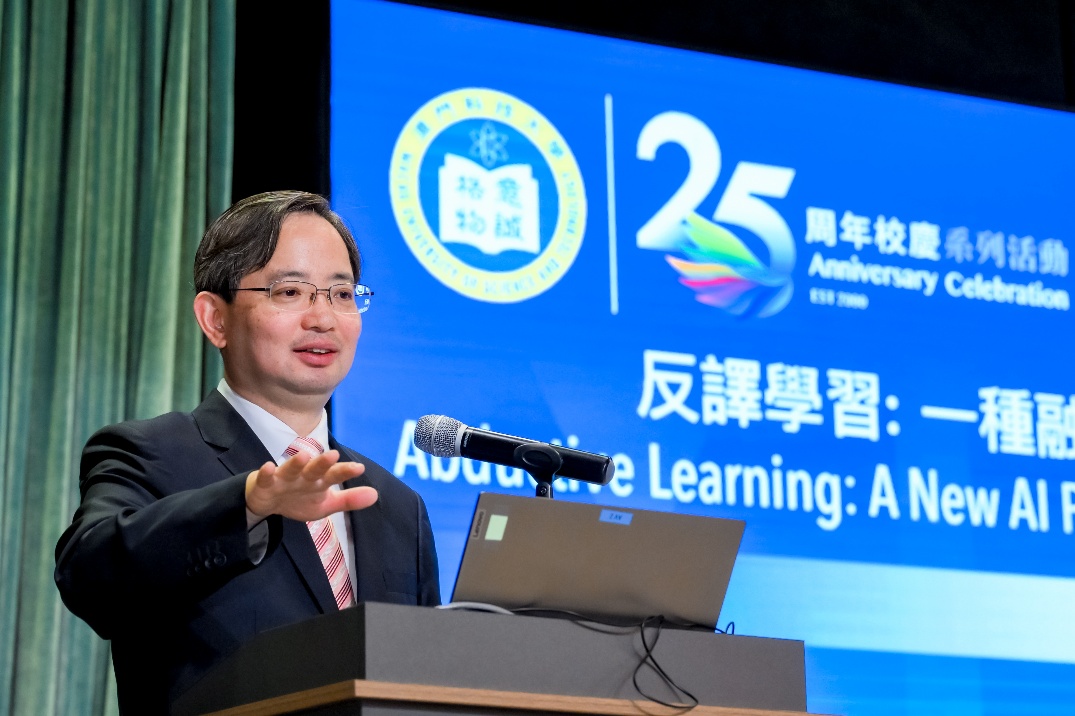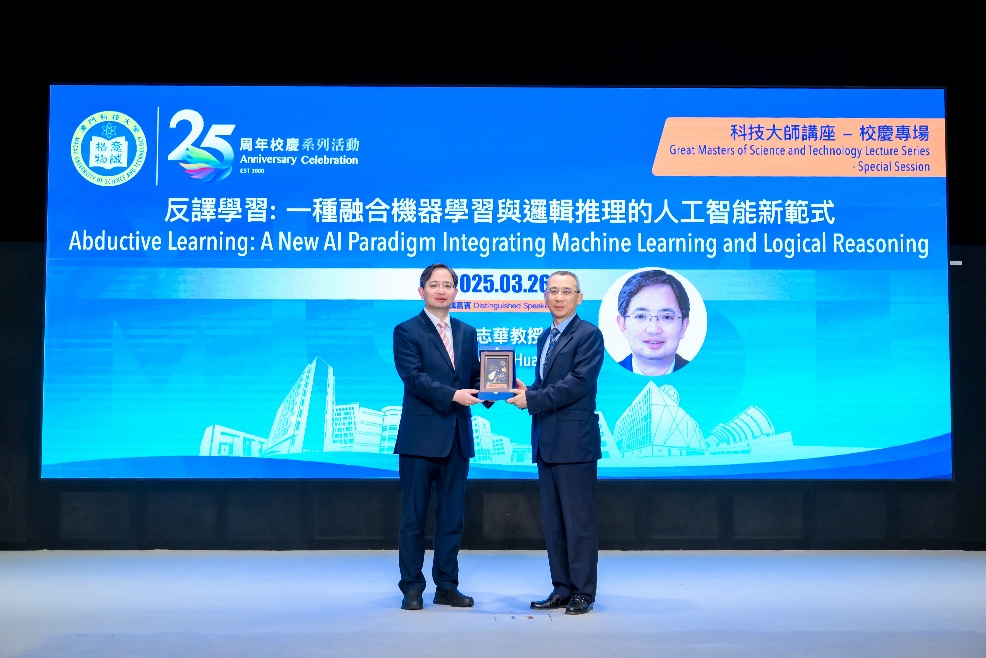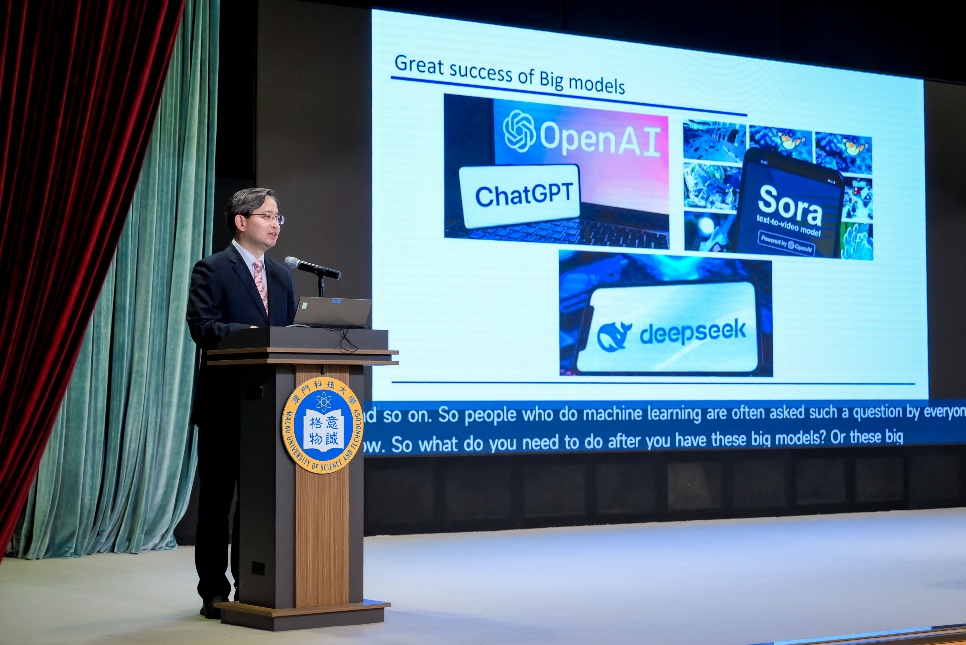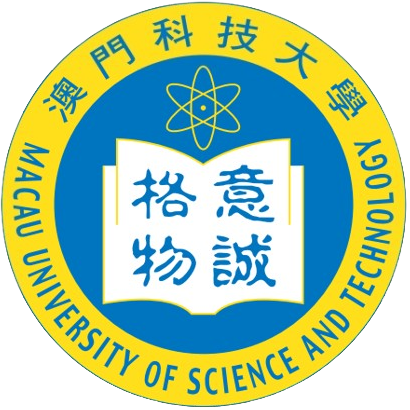MUST 25th Anniversary Celebrations: Master Lecture on Science and Technology – Special Session Abductive Learning: A New AI Paradigm Integrating Machine Learning and Logical Reasoning

Hosted by Macau University of Science and Technology, the Master of Science and Technology Lecture Series –Special Session took place on the morning of March 26. The lecture, titled "Abductive Learning: A New AI Paradigm Integrating Machine Learning and Logical Reasoning," was delivered by Professor Zhi-Hua Zhou, President of the IJCAI Trustee, world-renowned AI expert, and 2025 Honorary Doctor of MUST.
Professor Zhi-Hua Zhou specializes in artificial intelligence, machine learning, and data mining. He has made outstanding contributions to ensemble learning, multi-label learning, and weakly supervised learning. His distinguished academic achievements, as the first author, include two National Natural Science Awards (Second Class), a First Prize in Natural Science from the Ministry of Education, and a First Prize in Science and Technology from Jiangsu Province.

Chair Professor Jiang Zhihong, Vice-President of MUST, presented a souvenir to Professor Zhi-Hua Zhou
In this lecture, Professor Zhou focused on how machine learning and logical reasoning (including traditional knowledge engineering) have represented the mainstream research directions in artificial intelligence during different periods. The former excels at utilizing "data facts," while the latter leverages "domain knowledge," and the two have evolved almost independently. However, when solving practical problems, humans often rely on both "data facts" and "domain knowledge." This has posed a long-standing foundational challenge in the field of artificial intelligence: how to enable machine learning and logical reasoning to work effectively within a unified and collaborative framework. Professor Zhou shared his insights and perspectives on this topic.

During the lecture, Professor Zhou introduced the audience to the developmental history of highly successful large language models (LLMs) in the AI field, such as DeepSeek, along with concepts like "knowledge distillation," "dual learning," and "deep reinforcement learning." This helped attendees better understand that the rapid advancement of LLMs owes much to the collective contributions of scholars worldwide, including those from China. Building on the question "Can large models solve all problems?" Professor Zhou delivered an in-depth analysis, emphasizing the need for future research into challenges beyond the current capabilities and applicability of LLMs.
Following this, Professor Zhou presented real-world dialogue cases with AI large language models, sharing current limitations in their trustworthiness and reliability, along with existing mitigation strategies. He then introduced two contrasting methodologies: the "reasoning-heavy, learning-light" approach and the "learning-heavy, reasoning-light" approach, analyzing their respective strengths and weaknesses. This led to the introduction of the concept of "abductive learning," a paradigm aiming to harmonize these dual aspects. Professor Zhou further elaborated on foundational research progress in abductive learning, its practical applications, and provided an accessible analysis through concrete case studies.
In conclusion, addressing the reliability challenges of LLMs raised earlier in the lecture, he proposed that abductive learning could unlock opportunities to explore synergistic advancements between "cognition" and "perception" in future research. During the Q&A session, Professor Zhou shared his perspectives on the potential applications of abductive learning.

